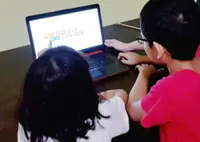Access for everyone: With schools still shut, more needs to be done to narrow the digital divide as virtual lessons are a popular PdPR method. - CHAN BOON KAI/The Star
HOME-based teaching and learning (PdPR) has been fraught with problems from the get-go.
The biggest and most common complaint levelled against it is the fact that not every student has access to Internet connectivity and digital devices.





